Edie Melson's Blog, page 7
August 2, 2025
Spiritual Practices for Writers: The Practice of Humility
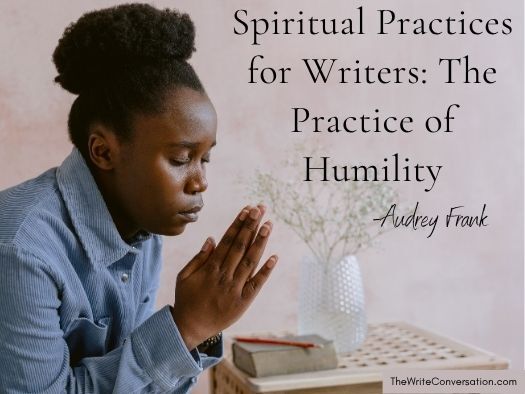
by Audrey Frank @AudreyCFrank
For my mentor, and my family, thank you.
Instead of being motivated by selfish ambition or vanity, each of you should, in humility, be moved to treat one another as more important than yourself (Philippians 2:3, NET).
I have not always practiced humility, but I have practiced seeking mentors to help me become skilled at what God asks me to do.
I can’t remember when I did not write. It was my creative castle once I could hold a crayon, then as I grew older, it became my chapel where I worshipped God in private, pen in hand. I never planned to share my words beyond that sacred, secret space.
One day, the One who is the Word had a serious conversation with me about my words. His message was simple: they aren’t yours. Give them away. So, I set out to find someone to show me how to do it.
Before the days of social media, the Blue Ridge Mountains Christian Writers Conference was advertised in magazines. I feel sorry for those who aren’t familiar with the pleasing, particular scent of a freshly printed magazine. It was there, many years ago, before the commission to give my words away, that I found an advertisement for the BRMCWC. I cut it out and tucked it in my Organizer of All the Things. Each year when I sorted and purged, it remained. I couldn’t throw it away. I treasured that little square of paper like a secret wish.
I suppose that although I was selfish with my words in those days, a desire was growing in me to share them. God had planted the tiny seed right under my nose.
And in the same way, He would lead me to a mentor prepared just for me.
My family surprised me in 2014 with a gift: using my carefully preserved advertisement as a reference, they found the modern-day BRMCWC. They secured a spot for me and presented the gift along with a 1934 Royal Junior typewriter and the cheery note, “It’s time to give your words away!”
I arrived at the conference nervous and alone, afraid to even call myself a writer. One morning, the plenary topic was marketing. The speaker stood up and began to describe her marketing philosophy.
I believe humility is the foundation of successful writing. So, I promote others. I place them before myself. I leave my promotion in the hands of the Lord, who showed us the way of humility.
Her message was completely unexpected. As the talk ended, I sensed the Lord at my shoulder, giving me a spiritual shove.
Ask her.
Stomach churning like a whirligig, I approached her. My request belched out of me, awkward and embarrassing.
She prayed about it and said yes.
That was over a decade ago.
In the words of my mentor, the practice of humility is the foundation of successful writing. Who will you promote today?
Lord, thank you for showing us the way of humility. Our honor is in Your hands, and we trust You. Amen.
TWEETABLESpiritual Practices for Writers: The Practice of Humility from @AudreyCFrank on @EdieMelson (Click to Tweet)
Don't Miss The Other Spiritual Practices for Writers! JANUARY: THE PRACTICE OF PLANNING
FEBRUARY: THE PRACTICE OF TRUSTING
MARCH: THE PRACTICE OF HOPING
APRIL: THE PRACTICE OF WAITING
MAY: THE PRACTICE OF DISCIPLINE
JUNE: THE PRACTICE OF PERSEVERANCE JULY: THE PRACTICE OF PROCLAIMING AUGUST: THE PRACTICE OF HUMILITY
 Audrey Frank is an author, speaker, and storyteller. The stories she shares are brave and true. They give voice to those whose words are silenced by shame, the hard things in life that don’t make sense, and the losses that leave us wondering if we will survive. Audrey and her family have spent over twenty years living and working among different cultures and world views, and she has found that God’s story of redemption spans every geography and culture. He is the God of Instead, giving honor instead of shame, gladness instead of mourning, hope instead of despair. Although she has three different degrees in communication and intercultural studies, Audrey’s greatest credential is that she is known and loved by the One who made her.
Audrey Frank is an author, speaker, and storyteller. The stories she shares are brave and true. They give voice to those whose words are silenced by shame, the hard things in life that don’t make sense, and the losses that leave us wondering if we will survive. Audrey and her family have spent over twenty years living and working among different cultures and world views, and she has found that God’s story of redemption spans every geography and culture. He is the God of Instead, giving honor instead of shame, gladness instead of mourning, hope instead of despair. Although she has three different degrees in communication and intercultural studies, Audrey’s greatest credential is that she is known and loved by the One who made her.Audrey is the author of Covered Glory: The Face of Honor and Shame in the Muslim World (Harvest House Publishers), an outpouring of Audrey’s heart to introduce others to the God of Instead. Shame is not unique to the developing world, the plight of the women behind veils, young girls trafficked across borders; shame is lurking in hearts everywhere. Through powerful stories from women around the world, Covered Glory illuminates the power of the Gospel to remove shame, giving honor instead. Available at favorite booksellers: BARNES & NOBLE, BOOKS A MILLION, AMAZON.
Published on August 02, 2025 22:00
August 1, 2025
Three Reasons Not to Be a GOAT Writer

by Tim Suddeth @TimSuddeth
I love watching TV sports shows. To me, many of the interesting things about sports aren’t the games but learning about the players. They are more than just numbers on shirts or jerseys. What they have to go through to reach their level of skill is inspiring. And humbling. To get where they are takes not only talent but a commitment that sometimes borders on obsession.
And each summer, like clockwork, when sports hit the annual slow period, the talking heads pull out their evergreen topics they like to argue. And one of the most popular arguments they like to rehash is: Who is the G.O.A.T? Who is the Greatest Of All Time?
Is it LeBron or Michael? Judge or Shohei? Brady or … whoever? There’s always someone they want to build up to be the best. Or tear down to make their argument.
As writers, we often fall into this trap of hoping to be the best. Especially the overachievers among us who never go halfway when taking on a task. It’s all or nothing, baby. We’re not stopping until we’ve climbed that mountain. And faster than anyone else. (Or anyone with good sense.) With a rucksack on our backs.
Go big or go home!
But, like sports, the goal of writing isn’t to find the best writer. We write to inform and/or entertain our reader. We create competitions to give out awards for the best, but that doesn’t mean the one they choose is better than the others. All the stories could be worthy; however, the judges have to choose the one they think best meets their guidelines. That’s why award-winning books and movies aren’t always the most popular.
Striving to be the best sounds like a worthy goal. But having the mindset that you have to be the best can create problems as you continue to write.
Three problems created by wanting to be the best writer.
1. It establishes an impractical standard.
What does being the best writer even mean? Writing isn’t one-size-fits-all. Although we have a bazillion writing contests choosing the Best Novel, Best Short Story, Best First Line, or Best Haiku, they don’t claim to find the absolute best. Their goal is to choose their pick of the ones who entered, realizing that another set of judges could choose another ‘Best’.
Maybe the ‘Best’ you’re chasing is to have the most sales on Amazon, be in all the bookstores, be one of the thousands best sellers on Amazon. The problem, if one of these is your goal, is that you have no control over them. You can work yourself crazy trying to game the system, but in the end most of what needs to happen is out of your control.
2. It keeps you from appreciating other people’s achievements.
Jordan has won six NBA championships. LeBron has won only four. Jordan was an All-Star 11 times. LeBron 21.
Folks, both men were awesome players in their day. They made plays that made fans’ mouths drop. We hear tales about how their opponents felt going up against them. They both made their teams better. To pick one over the other definitively is impossible.
And what do you do with players like Steph Curry, who shoots the three-pointer from waaay outside and makes it swish. How do you compare him to Wilt Chamberlain and Bill Russell, who played in a different era but dominated the game?
When I look at my favorite writers, they present the same problem. Like ice cream, you can’t choose just one. My favorites would include Max Lucado, Steve Berry, Charles Schulz, and Karen White. All of these are great writers in their own genres and in their own ways. But they are very different. And each of them gives value to their readers.
3. It keeps us from attempting new things.
If we always have to be the best, then we’ll be afraid to try something different. We’ll feel like you have to write in our genre instead of trying different stories and different lengths. We’ll fear we won’t be as good as we think we have to be.
And we won’t be. (Shocking, I know.) Everything has a learning curve. Sometimes, the only way we’ll learn is to take Robert Frost’s path until we realize oops, then turnaround and go back. We call it taking a blind alley. It might take you to the best blues bar in New Orleans, or it might just lead you to a smelly dumpster.
But the only way to know is to walk down the alley. (Not at night, though. That’s a Stephen King novel.)
It takes practice to get better. Even with silly things. Recently, I tried to throw an apple core into the field twenty feet behind our house. I wound up to throw the ball between the house and the cherry tree and … hit the birdfeeder, shattering the feeder. I picked the remaining apple up and threw it again. And hit an oak just in front of the fence. Now I’m looking for a little kid to practice tossing the ball with.
Writers get to enjoy all types of opportunities. I’ve spoken to people who wanted to write a book when they probably should start with an article. Writing is like learning a sport. The more you do it, the better you get. And by trying different ones you learn which ones you are best at.
No matter what your favorite coach may say, best is not a standard. It’s not even a SMART goal. In writing, as in sports, there is no best. There could be a winner, but that doesn’t negate the efforts of the others. And often, it’s those efforts that are most important.
Instead of pushing yourself to be the best, try to DO your best. Doing your best doesn’t require you to compare yourself to others. It accepts that where you are now isn’t where you’ll be in the future. And it allows you to ‘fail’ so that you’ll get better.
There is a saying; A tide rises all ships. And so it is with many writers’ groups, whether they meet in person or online. Find a group of writers where you can learn and grow together. And maybe you all can become better versions of yourselves.
What writing groups have you found helpful? Drop me a comment. Thanks for reading.
TWEETABLEThree Reasons Not to Be a GOAT Writer from @TimSuddeth on @EdieMelson (Click to Tweet)
 Tim Suddeth is a stay-at-home dad and butler for his wonderful, adult son with autism. He has written numerous blogs posts, short stories, and three novels waiting for publication. He is a frequent attendee at writers conferences, including the Blue Ridge Mountain Christian Writers Conference and a member of Word Weavers and ACFW. He lives near Greenville, SC where he shares a house with a bossy Shorky and three too-curious Persians. You can find him on Facebook and Twitter, as well as at www.timingreenville.com and www.openingamystery.com.
Tim Suddeth is a stay-at-home dad and butler for his wonderful, adult son with autism. He has written numerous blogs posts, short stories, and three novels waiting for publication. He is a frequent attendee at writers conferences, including the Blue Ridge Mountain Christian Writers Conference and a member of Word Weavers and ACFW. He lives near Greenville, SC where he shares a house with a bossy Shorky and three too-curious Persians. You can find him on Facebook and Twitter, as well as at www.timingreenville.com and www.openingamystery.com.
Published on August 01, 2025 22:00
July 31, 2025
Do I Really Need a Professional Book Cover for My Novel?
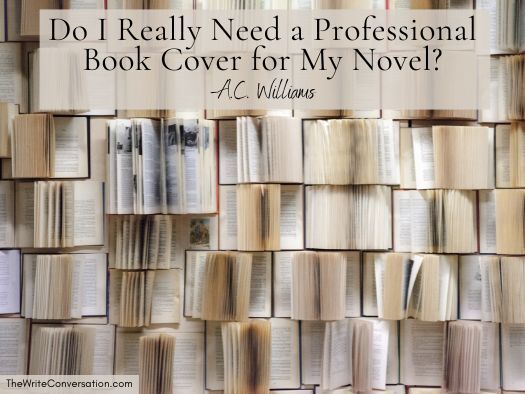
by A.C. Williams @ACW_Author
When you walk through a bookstore or a library, how do covers call out to you? Personally, my eyes are drawn first to the title of a book. What is it called? What does it mean? How can you interpret the title multiple ways to mean something different? I love a great title. But from what I have been told, I’m in the minority. A great title matters, yes, but what seems to matter much, much more is an excellent, genre-specific book cover.
So far in this series on self-publishing, we’ve talked about setting your goals, understanding your legal rights as a self-published author, ISBNs, distribution channels, and market research. This month, we’re going to talk about one of the most important investments you can make in your book: your book cover.
You really can judge a book by its cover. I hate to burst anyone’s bubble, but it’s true. If you see a cover that is professionally created with well-executed design elements, intentionally placed readable fonts, and captivating back cover copy, you’re probably safe in guessing that you’ve got a quality story on your hands. Or at least you can assume it’s a story that the author has invested a lot of time and effort into!
Why does a professional book cover matter so much?
Not only does a professional cover signal to a reader that the book itself has been professionally produced, a well-designed book cover will naturally attract attention. There is a science to design. If you haven’t studied design or made a habit of analyzing book covers, you might not understand how a cover needs to be engineered to make the eyes happy. This is an essential piece of information that you need in order to construct a book cover that will attract the kind of attention that will lead to a purchase.
Your book cover is your most valuable marketing piece. You will use this book cover on more than just your book; it needs to be all over your social media platforms, it needs to be on emails, bookmarks, postcards, websites, flyers, banners, posters, everywhere. Don’t just keep it on your book. It can be much more than that.
Some people are hesitant to spend so much money on a book cover because they aren’t confident that it will sell enough. And, to be honest, this is a valid concern. If you’re an indie author, your pockets may not be deep enough to drop a thousand dollars on a cover. Or, you could be releasing a novella intended to increase interest in a larger series, and you’d rather spend the money on the major series books rather than an introductory project.
What is the best choice to make?
Well, as always, it depends on your situation. How many books are you going to publish this year? How much is your budget for each book? How many books are in your series? What genre is your book?
If you are writing primarily in genres like romance, thriller, or mystery, you will probably be able to find a decent cover for not a lot of money. You might even be able to find a pre-made cover that will work for you. And if you hit the sales, you can find a high-quality, pre-made cover for less than $100 easily.
Where you will run into challenges, however, is in speculative genres or very specific historical eras. If your cover needs to be detailed in its representation of what is in the book, you will need a custom cover. You might be able to find a designer on a platform like 99designs that will work with you for less than $500, but you may have to provide your own stock photos.
This is the situation I’m in currently with a new title I have releasing either at the end of this year or the first quarter of next year. I have found a book cover designer I want to work with, but I need to provide my own stock photography.
That doesn’t have to break the bank though, considering that you can get special deals from stock photo sites like DepositPhotos (www.depositphotos.com) for a relatively inexpensive price.
Some authors I know have used Fivrr (www.fivrr.com) for their book covers, but I would be cautious about contacts on Fivrr. You can also search online sites like DeviantArt for artists you might want to work with. Some designers have a presence on Pinterest. Just make sure you do your research. That’s why a site like 99Designs (www.99designs.com) is so valuable. It’s vetted carefully and has high standards of quality.
But you don’t have to limit yourself to online searches either. Talk to people. Ask authors you know who did their book covers. Make time to browse the shelves at your favorite bookstore and pull covers that catch your eye. Usually you can identify who designed the cover on the copyright page at the front of a book. Google them. Email them. Try it.
Of course, you can try to make your own cover. There are some options for that, like DIYBookCovers (www.diybookcovers.com) which provides templates and training videos and even a web-based cover design tool. However, you can also use Canva (www.canva.com) with a professional subscription and access templates and images. However, if you haven’t studied design, you might be better off working with a professional.
Whether or not we should judge a book by its cover, most readers will. So you want to make sure that your cover communicates that your book is worth reading.
If you love your book cover designer, shout them out in the comments!
TWEETABLEDo I Really Need a Professional Book Cover for My Novel? from @ACW_Author on @EdieMelson (Click to Tweet)
Don't Miss the Rest of the Posts in This Series on Self Publishing: PART 1: WHY DO YOU WANT YOUR BOOK TO BE RE-PUBLISHED? PART 2: WHY CONTRACTS MATTER IF AN AUTHOR PLANS TO SELF PUBLISH PART 3: DO I NEED AN ISBN IF I SELF-PUBLISH MY BOOK? PART 4: HOW DO I DELIVER MY SELF-PUBLISHED BOOK TO A READER? PART 5: HOW DOES A COMP TITLE HELP A SELF-PUBLISHED BOOK'S MARKETING PLAN? PART 6: DO I REALLY NEED A PROFESSIONAL BOOK COVER FOR MY NOVEL?
 A.C. Williams, also known as Amy C. Williams, is a coffee-drinking, sushi-eating, story-telling nerd who loves cats, country living, and all things Japanese. Author of more than 20 books, she keeps her fiction readers laughing with wildly imaginative adventures about samurai superheroes, clumsy church secretaries, and goofy malfunctioning androids; her non-fiction readers just laugh at her and the hysterical life experiences she’s survived. If that’s your cup of tea (or coffee), join the fun at www.amycwilliams.com.
A.C. Williams, also known as Amy C. Williams, is a coffee-drinking, sushi-eating, story-telling nerd who loves cats, country living, and all things Japanese. Author of more than 20 books, she keeps her fiction readers laughing with wildly imaginative adventures about samurai superheroes, clumsy church secretaries, and goofy malfunctioning androids; her non-fiction readers just laugh at her and the hysterical life experiences she’s survived. If that’s your cup of tea (or coffee), join the fun at www.amycwilliams.com.
Published on July 31, 2025 22:00
July 30, 2025
From Dread to Delight: How to Host a Book Signing That Actually Works
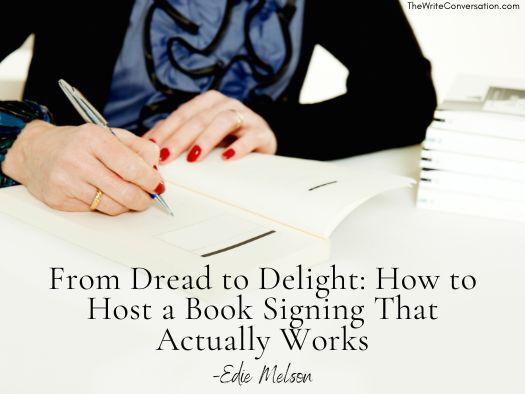
by Edie Melson @EdieMelson
Book signings . . .
For every want-to-be author they sound like a dream come true.
For those of us who have more than one book published . . . well . . . not always.
Whether you’re a seasoned author or just releasing your first book, there are certain things that can make you book signing successful and much less terror-inspiring.
14 Basic Tips for Book Signing Events
1. Make it an event. I’m speaking from experience here when I tell you that sitting behind a table with a stack of books, business cards, and a pen is a recipe for being ignored and disappointed. However, if you add some balloons, some friends, giveaways, and cupcakes (if allowed) people will come from all parts of the store to see what’s happening.
2. Don’t sit down. Don’t even let them bring you a chair, it’s just too tempting. Here’s why:It’s too easy to overlook you when you’re seated and below the customer or attendee’s line of site. It makes you look unapproachable.It makes it hard to interact and engage casual lookers.
3. Stand in front or beside your table of books. Hiding behind something may feel safer for those of us who are introverts, but the truth is you need to be inviting people to slow down chat.
4. Have something in your hand to give away. When you’re at your book signing, don’t go empty-handed. It could be bookmarks, a postcard, or even a short trivia quiz (more on what to DO in # 5). If you hand someone something, it begins a real connection.
5. Consider an activity. If you’re doing a book marriage, come up with a short, funny quiz for those who come near to take. If you’re sharing a children’s book, put together a short scavenger hunt. Give away a PDF of tips on how to pray for your kids, or a coloring page with a Bible verse. The ideas are endless, but giving people a way to interact with make them more likely to stop and buy a book.
6. Enlist your friends. We have a vibrant writing community here where I live (Greenville, SC) and I’m part of several writing groups. When it comes to book signings, we support each other. I encourage writers to support other writers by attending book signings because you want the same support when it’s your turn.
By asking friends and family to come by, it ensures a steady stream of visitors and helps make your book signing become an event as opposed to an interruption. I also arm those who come to support me with bookmarks and business cards and send them throughout the store. They can hand out the bookmarks and encourage those who haven’t talked to me to stop by and see what I’ve got.
7. Have a big giveaway or two. One thing I love to do is giveaway gift cards or certificates to the bookstore where I’m signing books. This helps the bookstore’s bottom line and your sales. And by big giveaway, I’m not talking hundreds of dollars, just something that’s actually worth money.
8. Have a way to subscribe to your email list. For someone to enter the drawing, I ask them to enter their name and email on my iPad (or computer) and subscribe to my mailing list. If someone refuses to do that, I still let them enter (it’s the nice thing to do) but I don’t have many who balk at sharing email for a change to win a prize.
I don’t use written slips of paper because they’re hard to read after I get home and I get a lot of unsubscribes if they don’t actually enter their own names.
9. Enlist an assistant. If you're expecting a good sized-crowd find someone to help you manage the line. Provide small squares of paper for those in line to print their names on. This will help you with spelling.
10. Invest in several good pens. Every author has their favorite type. I'm partial to signing with a Sharpie brand. Just make sure the ink won't smudge.
11. Announce the book signing in advance. I utilize social media, email and to friends and family. This is when I can share what the “Grand Prize” will be for attending.
12. Consider an online component. Since I’m already sharing the event on social media, I add a second big prize that I draw from those who share about the event on social media. I use RaffleCopter to do that so I don’t break any rules on the various social media platforms.
In addition, see if you have a friend who will share pictures and maybe a short video of your book signing while it’s going on. That allows those who can’t attend to enjoy it vicariously.
13. Be aware of what you can and can’t do. Depending on where your book signing is, there may be some guidelines you need to follow. In a bookstore, they may or may not allow food and drink. If you’re at a restaurant, there may be other guidelines. Find out the rules and follow them. That will ensure getting asked back!
14. Don’t forget to thank the host. If you’re signing at a book store, bring some cookies or something to leave with them after the event is done.
These are my best tips to make a book signing successful. I’d love to know what you’d add to this list?
Don’t forget to join the conversation!Blessings, Edie
TWEETABLEFrom Dread to Delight: How to Host a Book Signing That Actually Works @EdieMelson (Click to Tweet)
 Edie Melson is a woman of faith with ink-stained fingers observing life through her camera lens. She’s a writer who feels lost without that device & an unexpected speaker who loves to encourage an audience. She also embraces the ultimate contradiction of being an organized creative. She knows the necessity of Soul Care and leads retreats, conferences & workshops around the world on staying connected to God. Her numerous books, including the award-winning Soul Cares series & reflect her passion to help others develop the strength of their God-given gifts. Her blog, The Write Conversation is recognized as one of the top 101 industry resources.
Edie Melson is a woman of faith with ink-stained fingers observing life through her camera lens. She’s a writer who feels lost without that device & an unexpected speaker who loves to encourage an audience. She also embraces the ultimate contradiction of being an organized creative. She knows the necessity of Soul Care and leads retreats, conferences & workshops around the world on staying connected to God. Her numerous books, including the award-winning Soul Cares series & reflect her passion to help others develop the strength of their God-given gifts. Her blog, The Write Conversation is recognized as one of the top 101 industry resources. She and husband Kirk have been married 43+ years and raised three sons. They live in the foothills of the Blue Ridge Mountains and can often be found hiking—with Edie clinging to the edge of a precipice for the perfect camera angle and Kirk patiently carrying her camera bag and tripod. Connect with her on her website, WWW.EDIEMELSON.COM and through social media.
Published on July 30, 2025 22:00
July 29, 2025
August Calendar Inspiration for Writing Social Media Posts, Articles, and Blog Posts
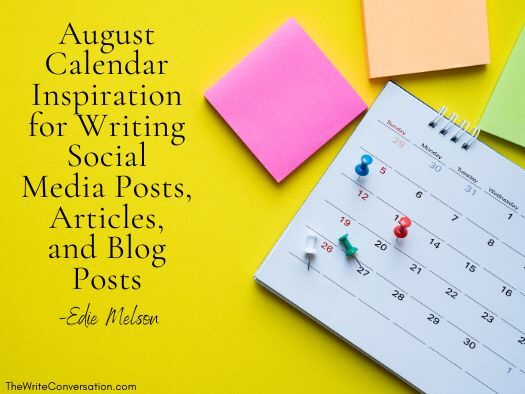
by Edie Melson @EdieMelson
August is just around the corner, so let's get started on writing ideas. The calendar is a great place to start when we’re looking for writing ideas. Crazy (and even legit) holidays are great conversation starters for social media sites, articles, and blogging. This month is especially fun for writers because of all the writing/reading related holidays. How many can you find? Be sure to leave your thoughts in the comment section at the end of the post.
The Month of August IsNational Hair Loss MonthNational Dog MonthNational Wellness MonthChildren’s Eye Health and Safety MonthNational Brownies at Brunch MonthMedicalert Awareness MonthNational Immunization Awareness MonthBlack Business MonthInternational Peach MonthMotorsports Awareness MonthNational Goat Cheese MonthNational Sandwich MonthNational Panini MonthGet Ready for Kindergarten MonthNational Crayon Collection MonthNational Back to School MonthHappiness Happens MonthNational Catfish MonthNational Golf MonthNational Eye Exam MonthRomance Awareness MonthFamily Fun MonthNational Water Quality Month
August Special WeeksTwins Days Weekend (first full weekend in August)Simplify Your Life Week (first week in August)International Clown Week (first week in August)National Minority Donor Awareness Week (August 1 – 7)World Breastfeeding Week (August 1 – 7) National Cleanse Your Skin Week (August 1 – 7)Stop on Red Week (first full week in August)National Exercise with Your Child Week (first full week in August)National Farmers Market Week (first full week in August)International Assistance Dog Week (begins first Sunday in August)Satchmo Summerfest (August 4 – 6)National Kool-Aid Days (second weekend in August)National Resurrect Romance Week (second full week in August)National Health Center Week (second week in August)National Bargain Hunting Week (second week in August)National Hobo Week (August 10 – 13)National Balayage Week (week of August 16)Elvis Week (week of August 16)National Management Training Week (third full week in August)National Aviation Wee (week of August 19)Be Kind to Humankind Week (last week in August)National Composites Week (last week in August)
Special Days in AugustAugust 1National Water Balloon Day (first Friday in August)Respect for Parents DayInternational Mahjong DayNational Raspberry Cream Pie DayMinority Donor Awareness DayNational Girlfriends Day
August 2National Play Outside Day (first Saturday of each month)National Jamaican Patty Day (first Saturday in AugustNational Summit Day (first Saturday in August)National disc Golf Day (first Saturday in August)Sandcastle Day (first Saturday in August)National VFR Day (first Saturday in August)National Mustard Day (first Saturday in August)National Sunflower Day (first Saturday in August)National ice Cream Sandwich DayNational Coloring Book Day
August 3National Sisters Day (first Sunday in August)National Friendship Day (first Sunday in AugustAmerican Family Day (first Sunday in August)National Georgia DayNational Watermelon DayNational Grab Some Nuts DayNational Hair Gloss Day
August 4National Coast Guard DayNational Chocolate Chip Cookie Day
August 5National Night Out Day (first Tuesday in August)National Work Like a Dog DayNational Oyster DayNational Underwear Day
August 6National Root Beer Float DayNational Social Engineering DayNational Fresh Breath DayNational Wiggle Your Toes Day
August 7Purple Heart DayNational Sea Serpent DayNational Lighthouse DayNational Raspberries N’ Cream Day
August 8National Pickleball DayNational Whataburger DayNational Dollar DaySneak Some Zucchini onto Your Neighbor’s Porch DayNational Frozen Custard DayNational Happiness Happens DayGlobal Sleep Under the Stars NightNational Mochi Day
August 9National Bowling Day (second Saturday in August)National Garage Sale Day (second Saturday in August)National Book Lovers DayNational Veep DayNational Rice Pudding DayNational Passion Fruit Day
August 10National Spirit of ’45 Day (second Sunday in AugustNational S’Mores DayNational Connecticut DayAgent Orange Awareness DayNational Lazy DayNational Shapewear Day
August 11Global Kinetic Sand DayNational Presidential Joke DayNational Son’s and Daughter’s DayPlay in the Sand DayNational Raspberry Bombe Day
August 12National Middle Child DayNational Julienne Fries DayNational Vinyl Record Day
August 13National Filet Mignon Day
August 14National Hazy IPA Day (third Thursday in August)National Navajo Code Talkers DayNational Creamsicle Day
August 15National Lemon Meringue Pie dayNational Leathercraft DayNational Relaxation Day
August 16National Airborne DayNational Roller Coaster DayNational tell a Joke DayNational Bratwurst Day
August 17Remembrance for Road Traffic Victims (third Sunday in August)Black Cat Appreciation DayNational Pineapple Juice DayNational Nonprofit DayNational I Love My Feet Day!National Massachusetts DayNational Thrift Shop Day
August 18National Fajita DayNational Mail Order Catalog DayNational Ice Cream Pie Day
August 19National Soft Ice Cream DayNational Potato DayNational Aviation Day
August 20National Accessible Air Travel dayNational Bacon Lovers DayNational radio DayNational Chocolate Pecan Pie day
August 21National Senior Citizens DayNational Spumoni DayBrazilian Blowout day
August 22National Never Bean Better DayNational BAO DayNational Surgical Oncologist DayNational Pecan Torte DayNational Be an Angel DayNational Tooth Fairy Day
August 23National Cuban Sandwich DayFind Your Inner Nerd DayNational Ride the Wind DayNational Sponge Cake Day
August 24National Waffle DayNational Peach Pie DayNational Maryland Day
August 25National Secondhand Wardrobe DayNational Park Service Founders DayNational Banana Split DayNational Kiss and Make Up Day
August 26National Cherry Popsicle DayNational Webmistress DayNational Got Checked DayNational Dog DayNational Women’s Equality Day
August 27National Pots De Crème DayNational Peach DayNational Just Because Day
August 28National Power Rangers DayNational Thoughtful DayRainbow Bridge Remembrance DayNational Bow Tie DayNational Cherry Turnover Day
August 29National Sport Sampling Day (241st Day of the year)National College Colors Day (Friday before Labor Day)According to Hoyle DayNational Chop Suey DayNational Lemon Juice Day
August 30National Toasted Marshmallow DayNational Grief Awareness DayNational Beach Day
August 31National South Carolina DayNational eat Outside DayNational Diatomaceous Earth DayNational Matchmaker DayNational Trail Mix Day
Now it's your turn. What holidays inspire you? Do any of them strike a nerve for marketing or a fun post? Share how you'll use them in the comments section below and inspire us!
Don't forget to join the conversation!Blessings, Edie
TWEETABLEAugust Calendar Inspiration for Writing Social Media Posts, Articles, and Blog Posts from @EdieMelson (Click to Tweet)
If you're interested in doing your own research into holidays, here are several websites to get you started!Brownie Lock: HTTPS://WWW.BROWNIELOCKS.COM/MONTH2.HTMLHoliday Insights: HTTPS://WWW.HOLIDAYINSIGHTS.COM/MOREHOLIDAYS/APRIL.HTMNational Day Calendar: HTTPS://WWW.NATIONALDAYCALENDAR.COM/YEAR-AT-A-GLANCE
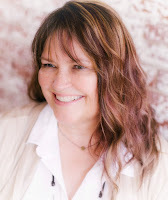 Edie Melson is a woman of faith with ink-stained fingers observing life through her camera lens. She’s a writer who feels lost without that device & an unexpected speaker who loves to encourage an audience. She also embraces the ultimate contradiction of being an organized creative. She knows the necessity of Soul Care and leads retreats, conferences & workshops around the world on staying connected to God. Her numerous books, including the award-winning Soul Cares eries & reflect her passion to help others develop the strength of their God-given gifts. Her blog, The Write Conversation is recognized as one of the top 101 industry resources.
Edie Melson is a woman of faith with ink-stained fingers observing life through her camera lens. She’s a writer who feels lost without that device & an unexpected speaker who loves to encourage an audience. She also embraces the ultimate contradiction of being an organized creative. She knows the necessity of Soul Care and leads retreats, conferences & workshops around the world on staying connected to God. Her numerous books, including the award-winning Soul Cares eries & reflect her passion to help others develop the strength of their God-given gifts. Her blog, The Write Conversation is recognized as one of the top 101 industry resources. She and husband Kirk have been married 40+ years and raised three sons. They live in the foothills of the Blue Ridge Mountains and can often be found hiking—with Edie clinging to the edge of a precipice for the perfect camera angle and Kirk patiently carrying her camera bag and tripod. Connect with her on her website, WWW.EDIEMELSON.COM and through social media.
Published on July 29, 2025 22:00
July 28, 2025
How to Hire a Freelance Editor: What Every Writer Needs to Know
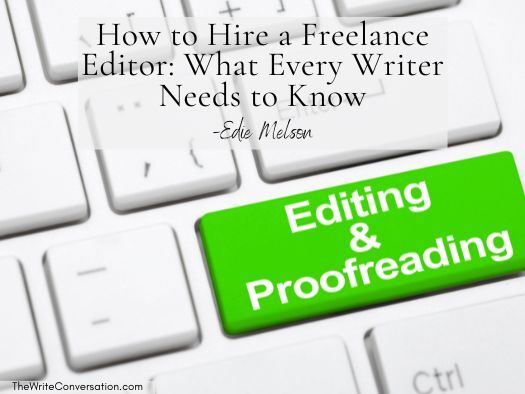
by Edie Melson @EdieMelson
Hiring a freelance editor is a great thing to do for your writing. I always recommend it to newer writers who are getting ready to submit for the first time, but I also have best-selling author friends who would never send a manuscript to their publisher without paying for a freelance editor to vet it. Today’s post is to help you find an editor and some best practices before spending any money.
Where to Find a Freelance Editor
The best place to find a freelance editor is in a writing group—in person or online. Ask for referrals and talk to people who have actually hired the editor in question. Remember, anyone can legally hang out a shingle and label themselves as a freelance editor. They don’t have to have any experience, training, or certification.
Some organizations have lists of people they recommend (like the Christian Pen), but I would still ask for a referral.
Training to Look ForDegree: someone who is employed at a publishing house usually has a degree, as well as real-time experience with editing. Certification: there are numerous programs offered that give editors certifications. The trustworthy ones that immediately come to mind are Writer’s Digest and The Christian Pen. I would trust someone with credentials from either of those places. Experience: sometimes people have an eye for editing and have taken on clients because of that knack. Don’t disregard these folks, I’ve used several editors like this and been very happy with the results.
8 Questions to Ask Potential Freelance Editors
1. Decide whether you need a writing coach or an editor. They perform two different things, although there can be some overlap. Here’s a valuable blog post about a writing coach from Crystal Bowman, The Benefits of Working with a Writing Coach .
2. Once you decide on hiring a freelance editor, you need to decide what kind of an edit you think you need. There are all kinds.A. Developmental Editing (Also called: Substantive or Structural Editing)What it accomplishes: This is the big picture edit. A developmental editor evaluates the manuscript’s overall structure, plot, pacing, theme, character development, tone, and consistency. For nonfiction, they focus on organization, argument strength, clarity of ideas, and logical flow.Key Questions Answered:Does the plot make sense and keep the reader engaged?Are the characters fully developed and believable?Is the story arc clear and satisfying?Are the themes integrated organically?Are there holes in logic or timeline?Common Changes Include:Rearranging chapters or scenesAdding/deleting characters or plotlinesSuggesting deeper emotional arcs or stronger arguments
B. Line Editing (Also called: Stylistic Editing)What it accomplishes: This focuses on the craft of writing itself—style, language, sentence structure, rhythm, and tone. A line editor ensures your voice is clear and consistent, and that each sentence flows well and reads smoothly.Key Questions Answered:Is the prose engaging and appropriate for the genre/audience?Are sentences varied and well-constructed?Is the language fresh, not cliché?Is the tone consistent and intentional?Common Changes Include:Rewriting awkward or clunky sentencesEnhancing word choiceTrimming repetition or overuseTightening dialogue and interior monologue
C. CopyeditingWhat it accomplishes: This is the technical tune-up. A copyeditor ensures accuracy, clarity, consistency, and correctness in grammar, punctuation, spelling, usage, and formatting. They also apply a style guide (e.g., The Chicago Manual of Style) to maintain consistency throughout.Key Questions Answered:Are there grammar or punctuation errors?Is the manuscript internally consistent (e.g., spelling of character names, capitalization)?Are facts correct (when relevant)?Are citations or quotes properly formatted?Common Changes Include:Fixing typos, comma splices, or misused homophonesCorrecting inconsistent tense or POV shiftsStandardizing formatting (e.g., chapter titles, italics)Flagging factual errors
D. ProofreadingWhat it accomplishes: This is the final polish before publication. A proofreader catches last-minute errors that may have slipped through—think of it as quality control. It typically happens after layout or typesetting, reviewing the book in its final form.Key Questions Answered:Are there lingering typos or punctuation mistakes?Are formatting and spacing consistent?Do all page numbers, headers, and footers appear correctly?Are chapter breaks clean and complete?Common Changes Include:Fixing missing or duplicated wordsCatching misnumbered pages or orphaned headingsEnsuring consistent use of fonts and spacing
E. Sensitivity ReadingWhat it accomplishes: Not an edit in the technical sense, but a sensitivity reader reviews your manuscript for potentially harmful or inaccurate representation of cultures, identities, disabilities, or experiences outside your own.Especially valuable if:You’re writing characters from marginalized groupsYour story addresses trauma, faith, race, or historical injustice
3. What is the cost and how do you want your money?Do they want the money all up front? If so, what guarantees are built in that my edit will be done in a timely fashion and accurate.Over time? Do they want part now, and part later?4. Do you have an opening in your calendar and how long should my editing job take you to finish.
5. Do you offer a sample edit? When I was working as a freelance editor, I preferred to offer a short sample edit. This allowed me to see the level of the work the author was submitting and gave us both a chance to determine if we would enjoy working together. Some editors offer a sample edit, some don’t.
6. What kind of a contract do you offer. Let me say right now, hiring a freelance editor isn’t inexpensive. When you’re spending this kind of money—I don’t care how well recommended or how well you know the person—NEVER work without a contract. A legal contract will protect everyone.
7. Can you provide a list of referrals and/or clients. Always ask someone who is or has worked with the person you’re considering.
8. What is your policy if a crisis happens. A crisis can happen to anyone—the author or the editor. What process is built in to let everyone know and reschedule or refund all or part of the money?
Bottom LineDo not take ANYONE (someone with a degree, certification, or gift) at face value. Do your homework and be wise. A freelance editor is a valuable tool, but take responsibility for finding the right fit for you.
Now it’s your turn. What tips do you have for hiring/finding a freelance editor? Be sure to share your thoughts in the comments section below.
Don’t forget to join the conversation!Blessings, Edie
TWEETABLEHow to Hire a Freelance Editor: What Every Writer Needs to Know from @EdieMelson (Click to Tweet)
 Edie Melson is a woman of faith with ink-stained fingers observing life through the lens of her camera. No matter whether she’s talking to writers, entrepreneurs, or readers, her first advice is always “Find your voice, live your story.” As an author, blogger, and speaker she’s encouraged and challenged audiences across the country and around the world. Her numerous books reflect her passion to help others develop the strength of their God-given gifts and apply them to their lives. Connect with her on her website, through Facebook, Twitter and Instagram.
Edie Melson is a woman of faith with ink-stained fingers observing life through the lens of her camera. No matter whether she’s talking to writers, entrepreneurs, or readers, her first advice is always “Find your voice, live your story.” As an author, blogger, and speaker she’s encouraged and challenged audiences across the country and around the world. Her numerous books reflect her passion to help others develop the strength of their God-given gifts and apply them to their lives. Connect with her on her website, through Facebook, Twitter and Instagram.
Published on July 28, 2025 22:00
July 27, 2025
Martha Had ADHD—and So Do I: Finding Peace in a Distracted Writing Life

by Ane Mulligan @AneMulligan
Poor Martha. In Luke 10:38-42 Jesus admonished her to be more like Mary and find a balance between her service and spiritual focus. Yet everything distracted her. The more I read about Martha, the more I'm convinced she was ADHD.
Think about it. The Master and all his disciples and entourage descend on her home. Yikes! She's expected to feed them all with no advance warning? She runs to the pantry, quickly grabbing what she needed to fill all those bellies.
On her way back to the kitchen she notices the laundry room door is open and her guests can see all the towels sitting on the dryer door. She sets her meal ingredients on the washer, pushes the wet laundry into said dryer and starts it. Picking up the food items, she then closes the laundry room door and hurries back to prepare the meal.
Whew! And in the meantime, her sister, Mary, is sitting spellbound at Jesus' feet. How can she ignore all the chaos around them? Better, how can Martha not?
Like I said, "Poor Martha." And poor me! I'm ADHD like her and have been all my life.
I struggle with getting time with God. I start to pray, get two sentences out, and my mind zips after a squirrel. Can anyone out there relate? Oh, I can pray out loud in my Bible study and not get off track. But in my prayer closet? My voice trails off when the first squirrel crosses my mind.
Finally, after decades of crying out to God to change me, I had a revelation. He made me for crying out loud. Of course he knows what I'm like. He was just waiting for me to figure it out.
Finding the balance.
Prayer doesn't have to mean long periods of uninterrupted time. This works for some people, and I envy them. But I'm not made that way. I can't change my ADHD. At the age of 78, I doubt it will happen.
However, with the help of the Holy Spirit, and plenty of friends' blog posts, I've learned to pray short prayers throughout my day. Almost like constant prayer, only I'm moving about while praying.
I'm not saying I've got it all figured out or down pat. I forget a lot. Ha. I forget a lot of things a lot. But the beginning of wisdom is asking God to help you. Seek and you will find. Ask and it will be given to you.
It may not be in the way you expected, but Father always answers. Now, when I see a prayer request on Facebook or in email, I pray immediately. I pray for ongoing requests throughout the day as God gives me recall. I learned those don't have to be long drawn out prayers. God knows the need, I merely add my voice in prayer to others.
The prayers of the saints empower the angels of God to move. Dan 10:12, Rev 8:3-5 and James 5:17 tells us Elijah was a man with a nature like ours. Yet his prayer was powerful.
The prayer of an ADHD saint can be as powerful as anyone's—it's just different. Not as long maybe. Not as beautiful maybe. But it's straight to the point and God receives it.
TWEETABLEMartha Had ADHD—and So Do I: Finding Peace in a Distracted Writing Life from @AneMulligan on @EdieMelson (Click to Tweet)
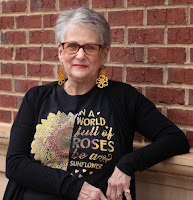 Ane Mulligan lives life from a director’s chair, both in theatre and at her desk creating novels. Entranced with story by age three, at five she saw PETER PAN onstage and was struck with a fever from which she never recovered—stage fever. One day, her passions collided, and an award-winning, bestselling novelist emerged. She believes chocolate and coffee are two of the four major food groups and lives in Sugar Hill, GA, with her artist husband and a rascally Rottweiler. Find Ane on her website, Amazon Author page, Facebook, Instagram,Pinterest, The Write Conversation, and Blue Ridge Conference Blog.
Ane Mulligan lives life from a director’s chair, both in theatre and at her desk creating novels. Entranced with story by age three, at five she saw PETER PAN onstage and was struck with a fever from which she never recovered—stage fever. One day, her passions collided, and an award-winning, bestselling novelist emerged. She believes chocolate and coffee are two of the four major food groups and lives in Sugar Hill, GA, with her artist husband and a rascally Rottweiler. Find Ane on her website, Amazon Author page, Facebook, Instagram,Pinterest, The Write Conversation, and Blue Ridge Conference Blog.
Published on July 27, 2025 22:00
July 26, 2025
Top Tools and Resources Every Writer Should Know About (2025 Edition)
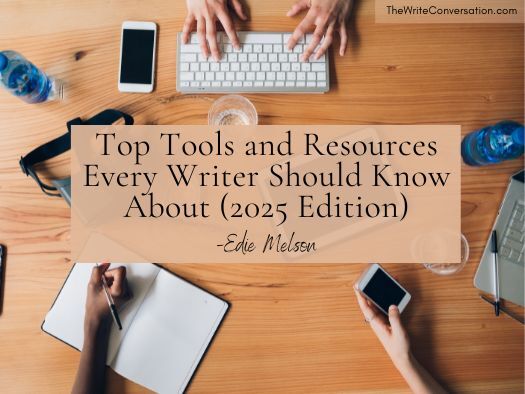
by Edie Melson @EdieMelson
It’s been a while since I’ve done a round-up post of things I find valuable in my everyday life as a writer. I was recently at a conference and had several people ask me for tips about things/resources that help me. Maybe not everyone of these is something you could use, but hopefully you’ll find something new that’s fun and helpful!
Basics Resources for Every Writer
I have certain non-negotiables when I work with clients and accept submissions. These are those requirements
1. Microsoft Word. I know, there are other options—some free and some not. But the fact is, when you’re submitting—especially for editing (that would be to a publisher, agent, guest post, article, etc)—you need Microsoft Word. Saving a document in other programs as a word program will mess up your formatting and can even cause worse issues. Just bite the bullet and buy the program. I use the monthly option and am very satisfied because I never have to upgrade, Microsoft does it for me.
2. Canva Pro. We all need to be able to work with graphics. Many of us are bloggers and/or write guest blogs and need to find LEGAL images to illustrate posts. Canva is your best—safest bet. Although there is a learning curve, Canva Pro can help create graphics for everything from social media to business cards (I love their printing service). Canva also makes excellent PDFs for handouts and giveaways and does about everything else except clean your house.
3. Professional Email. I don’t mean you have to pay for an email service (at least not yet). But the email you choose should be the name you write under, not something like—gigglinggrandma @ hotmail.com. I have a paid email account that comes with my website edie@ediemelson.com. I also have a gmail account that has my name.
4. Website. I know, it’s not easy. And if you have someone else do it for you, it’s not cheap. But it’s critically important to have a place to build your email list. That place is NEVER social media!
Other Online Resources I Find Valuable for Writers1. Chat GPT or another AI program. Don’t let AI create your product, but use it for social media, marketing, brainstorming, and organizing your author life. I came kicking and screaming into using AI and now I find it’s the virtual assistant I’ve always been looking for!
2. Numerous Blogs, Websites, and Podcasts. There is just so much incredible value to be found—for FREE—through these resources. Don’t discount the education you can get through 15 to 30 minutes a day of reading. I subscribe to 100s of these, so I have too many to share. I judge which ones to read on any given day by looking at the subject line and title.
3. Social Media. It’s important for almost every author to have a vibrant social media presence. Social media is also a great place to make connections and learn from others.
4. Pixabay.com. This is one of my go-to sites for free and copyright free images.
5. UnSplash.com. This is my other go-to site for free and copyright free images.
Valuable Groups for Writers to Join1. CAN (Christian Authors Network). This professional organization is a wonderful place for traditionally published authors to connect and learn. It’s run by the AMAZING Susan U. Neal and she fills the resources full and overflowing with things authors need to be successful.
2. CIPA (Christian Indie Publishing Association). Just like CAN, this is owned by Susan U. Neal and provides the same value for those who are independently published.
3. Word Weavers International. This is the gold standard when it comes to critique groups. There are physical chapters all over the US and digital chapter options for those who don’t live near a group. This is where I send writers when they ask for a group of fellow writers to connect with.
4. AWSA (Advanced Writers and Speakers Association). Sorry gentlemen, this is a women-only group. It was started and still led by the indomitable Linda Evans Shepherd. It is a group of women (over 800 strong) who share insight, encouragement, and opportunities. This is my community and I love doing the writing life with these women!
5. Blue Ridge Conference Writers Facebook Group. You knew I’d have to add this one! It’s completely free to join this private group. I started it as a way for those who attend the Blue Ridge Mountains Christian Writers Conference to make connections before and after the yearly conference. It has morphed into a gathering place for writers. We seek to answer questions, offer valuable links and resources, and encourage each other—no matter where we are in our writing journey.
6. ACFW (American Christian Fiction Writers). I love this group! There are numerous resources in the members only area—from classes to groups. I joined this early in my career and even though I wasn’t working as a fiction writer, the storytelling tools I learned here are some of what have made me an good nonfiction writer.
Apps that I Find Helpful for Writers1. Social Media apps. Several (like Instagram and even Facebook) work best on a cell phone. I also like to separate my social media from my office (computer time).
2. Snapseed. This is a photo editing app. It’s a great place to do quick edits when you’re out. This is great when you’re sharing photos at an event or on the go. It even has several tools that help fix up those selfies!
3. Wordswag. This is a paid app, but I love it for creating memes. It has options to use Pixabay or UnSplash free and copyright free images or your own.
4. Kindle or Other Ebook Readers. It doesn’t matter whether you use Kindle or the library apps. Having access to ebooks on your phone is super helpful. I use these apps to house my writing-craft library for instant access to information I need.
5. Music app like Apple Music, Amazon Music, Pandora, Spotify, etc. I use these apps for music (of course) but also for podcasts. If you aren’t listening to podcasts, like our own Your Best Writing Life, you’re missing out on valuable publishing information and encouragement.
Other Valuable Things for Writers1. Smart Phone. These little computers are invaluable for writers. They help us stay on top of social media, keep our calendars organized, and connect us to others. It’s also a great camera—way better than the cameras I started out on years ago. Learn to use the one you have and find out how to simplify your life.
2. A good laptop computer. We could get into the whole Apple vs. PC argument, but why would we? Just find one you like, learn to use it, load Microsoft Word on it, and get started writing!
3. A good backpack/computer bag. I’ve bounced between rolling options, backpacks, and messenger versions. My latest favorite is one I found on Amazon thanks to the amazing Barb Roose. Here’s a link to my favorite computer backpack for writers .
4. A good water bottle. Folks, we’ve got to stay hydrated. Find a cup, bottle, whatever and drink your way healthy!
5. Bullet journal. I’m a fan of bullet journaling and my favorite place to purchase journals is from Archer and Olive . The paper in the journals is thick enough to use watercolors on and they have a lay flat binding.
6. Good Pens. We all have our favorites. Some of us only use gel pens, others prefer ballpoint. Here is a link to the brand I love best, Tul pens. I prefer fine point, gel, but they have tons of options.
7. Transparent Sticky Notes. Yep, you read that right. I’ve fallen in love with these valuable little gems. Here’s an amazon link to my favorite color options for Transparent Sticky Notes.
8. An iPad or Tablet. I find my iPad invaluable. It's more portable than my laptop computer and smaller.
One Final ThingI have found a super helpful marketing book from my friend, Susan Neal. There are tons of other books, but this one was recently rewritten and released so it's on my mind. I think every author should own a copy of How to Sell 1000 Books a Month: Strategies to Improve Sales .
Trufully I could go on and on, but I think I’ve got most of my favorites here. Now it’s your turn. What do you find most valuable? Share and we’ll all benefit! Leave your own suggestions in the comments below.
Don’t forget to join the conversation!Blessings, Edie
TWEETABLETop Tools and Resources Every Writer Should Know About (2025 Edition) from @EdieMelson (Click to Tweet)
 Edie Melson is a woman of faith with ink-stained fingers observing life through the lens of her camera. No matter whether she’s talking to writers, entrepreneurs, or readers, her first advice is always “Find your voice, live your story.” As an author, blogger, and speaker she’s encouraged and challenged audiences across the country and around the world. Her numerous books reflect her passion to help others develop the strength of their God-given gifts and apply them to their lives. Connect with her on her website, through Facebook, Twitter and Instagram.
Edie Melson is a woman of faith with ink-stained fingers observing life through the lens of her camera. No matter whether she’s talking to writers, entrepreneurs, or readers, her first advice is always “Find your voice, live your story.” As an author, blogger, and speaker she’s encouraged and challenged audiences across the country and around the world. Her numerous books reflect her passion to help others develop the strength of their God-given gifts and apply them to their lives. Connect with her on her website, through Facebook, Twitter and Instagram.
Published on July 26, 2025 22:00
July 25, 2025
Think Like a Screenwriter: Show, Don’t Tell Your Novel to Death
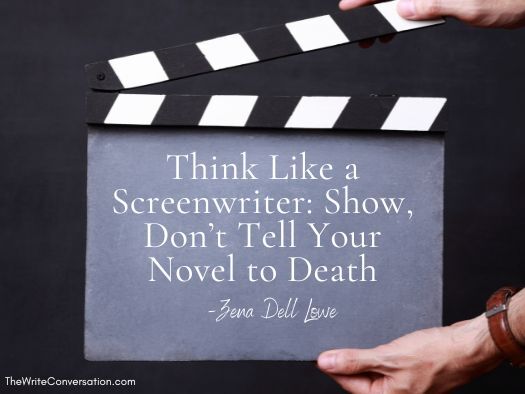
by Zena Dell Lowe @ZenaDellLowe
If your character spends most of your novel thinking, your readers will stop feeling.
The problem is, many novelists don’t know how to tell a story without overly relying on their characters’ thoughts. That’s understandable—because in a novel, everything the reader learns is filtered through a character’s point of view. We’re always inside someone’s head, seeing the world through their lens.
In screenwriting, though, the information comes through a literal lens—the camera. It's all about what we see on the screen. Screenwriters can't tell us what a character is thinking or feeling. Their job is to show us, using action, behavior, and visual imagery that gives the audience clues. Then it’s up to the audience to interpret those clues and draw their own conclusions.
So yes, novelists have the luxury of internal thought—and the medium demands it—but too many lean on it like a crutch. They forget that fiction is also a visual art. The key is strategic introspection, supported by storytelling that the reader can see and feel.
So how do you do that? How do you take all those swirling thoughts and emotions and turn them into tangible actions, images, or moments that pull the reader deeper into your world?
Let’s break it down.
Show the Feeling in Your Writing: The Power of Visual Imagery
The first step is to take the raw emotion your character is feeling and ask: What does it look like? What kind of behavior would make that emotion visible?
If your character is sad, you could write, “She was sad.” But that’s flat. On-the-nose. Uninteresting. Instead, consider how sadness might manifest. What might she do that would make us say, “Oh… she’s sad.”
Maybe she’s sitting in the dark, eating ice cream straight from the carton while a TV show drones in the background. She’s still in yesterday’s clothes. The curtains are drawn. Dust motes drift in the dim light. You don’t have to tell me she’s sad—I can see it. The visuals speak for themselves.
But here’s the thing: this is a generic picture of depression. What you really want is character-specific behavior.Anyone can eat ice cream in the dark. But maybe your character eats frozen peas because that’s what she used to share with her sister on bad days. Maybe she doesn’t just sit still—she burns old love letters, or rewatches footage from a failed audition, or silently sharpens knives she doesn’t plan to use.
When you show emotion through personalized action, it’s twice as powerful. Because now, you’re not just showing howyour character feels—you’re revealing who they are.
So instead of relying on inner monologue, ask: what would this specific person do?
Let’s say your character is determined to turn their life around. Don’t tell me they’re ready for change—show them setting an alarm for 5 AM, lacing up worn-out sneakers, and running past the liquor store they used to frequent. Maybe they’re gulping raw eggs or slapping affirmations onto their mirror. We understand the internal shift, because we’re watching it play out.
That’s the power of imagery.
Actions and visuals make emotions visceral. They don’t just inform—they invite. They give your reader something to experience, not just absorb. And that act of participation creates a deeper emotional connection between the audience and your characters.
Say It with a Prop
Even in novels—where internal thoughts are allowed—challenge yourself to replace or supplement those thoughts with props: physical objects that carry emotional or symbolic weight.
Props can be powerful tools for visual storytelling. A single object, carefully chosen, can evoke memory, history, irony, or unspoken tension—without a word of explanation.
Let’s say your character is reflecting on how her mother grew up with limited opportunities. Instead of spelling it out in her thoughts, show her discovering an old photo: her mother as a teenager, wearing a hand-me-down dress and standing outside a one-room schoolhouse. That image alone speaks volumes. You can still include reflection if needed—but now, the prop is doing the emotional heavy lifting.
Or imagine a marriage falling apart. She sets the table for two, but he’s already eaten. Later, she finds his coffee mug in the sink—still warm—but he’s gone. The dishes become more than dishes; they’re symbols of absence, of disconnection. We feel the distance, because we see it.
Props aren’t just set dressing—they’re emotional shorthand. They offer subtext, texture, and memory. And when used with intention, they can reveal more about a character than a paragraph of introspection ever could.
The Danger of Passive Characters
When too much of your story happens inside your character’s head, they risk becoming passive. Passive characters observe. Active characters engage. And it’s the active ones who drive your story forward.
A protagonist who reflects, reminisces, or daydreams might be beautifully written—but if they don’t do anything, your story stalls.
Now imagine that same character taking action. Instead of mulling over an argument with her mother, she marches over to confront her. Instead of reminiscing about a lost love, she books a plane ticket to chase the one who got away. That’s momentum. And momentum is what keeps your audience turning the page.
Want to make your writing more dynamic right now? Try this:1. Scan your manuscript for internal lines—places where you’ve written what your character is thinking or feeling.2. Ask yourself: What could they do instead?3. Rewrite that moment as a visual or behavioral beat.
Here’s a simple example:✘ She thought about how unfair it was that her brother always got more attention.
✔ She paused at the hallway table, staring at the trophies. Each plaque bore her brother’s name, polished to a shine. Her own ribbon, frayed and faded, was crammed into a drawer beneath them.
See the difference? The second version invites the reader to experience the emotion instead of being told what it is.
That’s the power of showing.
So, as you revise, keep asking yourself: “How can I show this?” Make it your creative mantra. Because the more you show, the more your audience will feel—and that’s what makes a story unforgettable.
TWEETABLEThink Like a Screenwriter: Show, Don’t Tell Your Novel to Death from @ZenaDellLowe on @EdieMelson (Click to Tweet)
 Zena has worked professionally in the entertainment industry for over 20 years as a writer, producer, director, actress, and story consultant. Zena also teaches advanced classes on writing all over the country. As a writer, Zena has won numerous awards for her work. She also has several feature film projects in development through her independent production company, Mission Ranch Films. In addition to her work as a filmmaker, Zena launched The Storyteller’s Mission with Zena Dell Lowe, a podcast designed to serve the whole artist, not just focus on craft. In 2021, Zena launched The Storyteller’s Mission Online Platform, where she offers advanced classes and other key services to writers. Zena loves story and loves to support storytellers. Her passion is to equip artists of all levels to achieve excellence at their craft, so that they will truly have everything they need to change the world for the better through story.
Zena has worked professionally in the entertainment industry for over 20 years as a writer, producer, director, actress, and story consultant. Zena also teaches advanced classes on writing all over the country. As a writer, Zena has won numerous awards for her work. She also has several feature film projects in development through her independent production company, Mission Ranch Films. In addition to her work as a filmmaker, Zena launched The Storyteller’s Mission with Zena Dell Lowe, a podcast designed to serve the whole artist, not just focus on craft. In 2021, Zena launched The Storyteller’s Mission Online Platform, where she offers advanced classes and other key services to writers. Zena loves story and loves to support storytellers. Her passion is to equip artists of all levels to achieve excellence at their craft, so that they will truly have everything they need to change the world for the better through story.To find out more about Zena or her current courses and projects, check out her websites at WWW.MISSIONRANCHFILMS.COM and WWW.THESTORYTELLERSMISSION.COM
Published on July 25, 2025 22:00
July 24, 2025
Writer Beware! Don’t Make King David’s Fatal Mistake
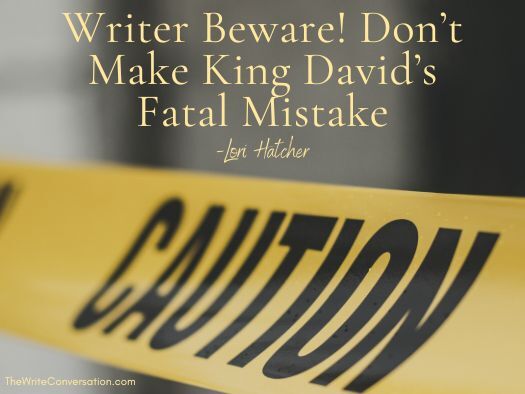
by Lori Hatcher
I’ve learned many lessons from King David, the “man after God’s own heart,” but one in particular applies well to my writing life.
Picture the scene: God has protected David from Saul, his maniacal predecessor; instated him as king over all twelve tribes of Israel; and blessed him with material and military success. His heart overflows with gratitude toward God for the way He has led him from his father’s sheepfolds to the king’s palace.
God’s been so good to me, I imagine David thinking. I want to do something to express my love for Him. Hey, what about the ark? It’s been sitting in Kiriath-jearim for decades. It should be here with me, in Jerusalem, not stuck aside in some guy’s house.
So “David conferred with each of his officers, the commanders of thousands and commanders of hundreds. He then said to the whole assembly of Israel, ‘If it seems good to you and if it is the will of the Lord our God, let us send word far and wide to the rest of our people throughout the territories of Israel, and also to the priests and Levites who are with them in their towns and pasturelands, to come and join us. Let us bring the ark of our God back to us, for we did not inquire of it during the reign of Saul.’ The whole assembly agreed to do this, because it seemed right to all the people” (1 Chronicles 13:1–4).
The more David thinks about it, the more excited he becomes. He outfits a fancy cart, hires some muscle to hoist the ark onto it, and trots off toward Jerusalem. That’s when disaster strikes. The oxen pulling the cart stumbles, Uzzah reaches out to steady it, and he dies at the hand of the Lord.
By now you’re probably wondering what in the world this story has to do with your writing life.
I’m glad you asked.
I see myself in David, and maybe you will, too. I love God and want to serve Him with my gift of writing. I’m grateful for the way He has kept me, provided for me, and given me purpose and joy.
On days when my heart swells to bursting, I want to do something—anything—for Him.
So I think up things. Maybe I’ll start a blog. Or write a book. Or launch a speaking ministry. Or ______. Or _____. Or _____!
I share my ideas with friends, colleagues, mentors, and then I tell everyone I know. I stick some Christianese on it, of course, as David did. “If it’s God’s will . . . .”
But I miss something very important.
I talk to everyone BUT God about my great ideas.
Nowhere in this biblical account does David ask God what He thinks. Or ask permission. Or read Scripture to try to discern God’s will. He didn’t consult his spiritual advisors, either. He just summoned them to come along (after all, who says no to the king?).
Like David, I sometimes get ahead of God. My motives are good, but they’re my motives. Sometimes my ideas come from God, but sometimes they come from my own head. How can I tell the difference?
The longer I walk with God and the longer I write for God, I’m learning to put every significant writing idea to this three-step test:1. Have I prayed about it and earnestly sought God’s will? Did the idea come to me while praying or actively seeking direction (that’s usually a good sign)? As I pray about it, does the desire grow stronger or weaker?2. Have I consulted with wise mentors and sought their honest counsel or just their rubber stamp of approval?3. Have I looked for biblical principles that apply to the decision? Are there any red flags or warnings to consider? Am I going about it in a way that obeys God’s Word and honors His ways?
Three months passed between David’s first attempt to bring the ark into Jerusalem and his second. In the interval, David applied the lessons he’d learned from his fiasco. He consulted God’s Word, confessed his sins of presumption and carelessness, and made every attempt to do God’s work God’s way (1 Chronicles 15:13). Scripture doesn’t tell us, but I suspect he also had a repentant conversation with God and asked His forgiveness and blessing.
The result?
“David and the elders of Israel and the commanders of units of a thousand went to bring up the ark of the covenant of the Lord from the house of Obed-Edom, with rejoicing” (v. 25).
Isn’t this what we want? To serve God with our writing life efficiently and effectively with joy?
God wants this for us too.
As we seek His will in prayer, consult wise counselors, and obey His Word, God promises to lead us in paths of righteousness for His name’s sake. James 1:5 reminds us, “If any of you lacks wisdom, you should ask God, who gives generously to all without finding fault, and it will be given to you.”
May all your writing endeavors accomplish His purposes and bring Him glory!~Lori
TWEETABLEWriter Beware! Don’t Make King David’s Fatal Mistake from Lori Hatcher on @EdieMelson (Click to Tweet)
 Lori Hatcher is a freelance editor, writing instructor, and author of six devotionals with Our Daily Bread Publishing. Her latest book, THINK ON THESE THINGS: 60 THOUGHTFUL DEVOTIONS FOR RENEWED PEACE, released this month. Lori writes for Revive Our Hearts, Guideposts, Focus on the Family, The Upper Room, and Crosswalk.com. A frequent instructor at writers conferences around the country, Lori loves nothing better than helping other writers polish and perfect their craft. Connect with her at WWW.LORIHATCHER.COM.
Lori Hatcher is a freelance editor, writing instructor, and author of six devotionals with Our Daily Bread Publishing. Her latest book, THINK ON THESE THINGS: 60 THOUGHTFUL DEVOTIONS FOR RENEWED PEACE, released this month. Lori writes for Revive Our Hearts, Guideposts, Focus on the Family, The Upper Room, and Crosswalk.com. A frequent instructor at writers conferences around the country, Lori loves nothing better than helping other writers polish and perfect their craft. Connect with her at WWW.LORIHATCHER.COM.
Published on July 24, 2025 22:00



